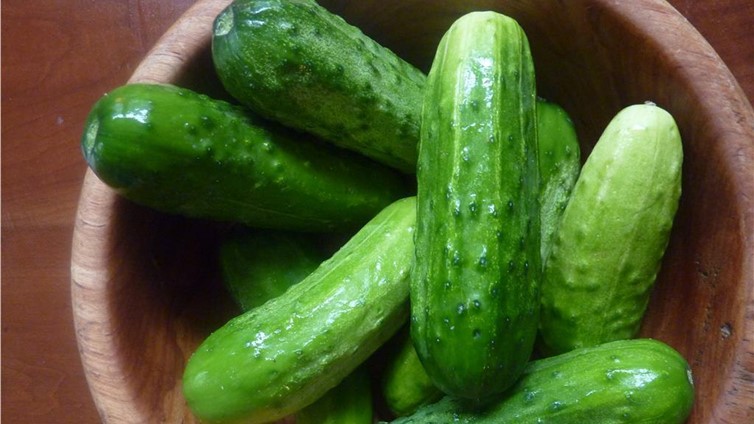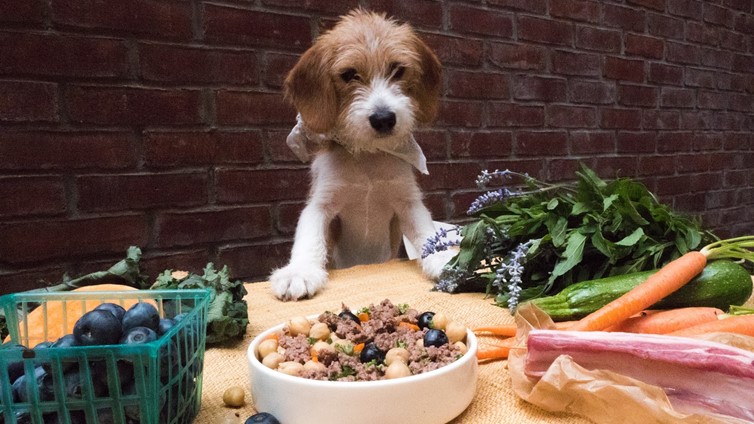Squash, zucchini, pumpkin and eggplant are all very healthy vegetable many of us include in our diet.
But as you know, dogs and people don’t always share the same criteria when it comes to healthy food.
So the question is – are these vegetables safe for your dog to have?
Dogs love to eat, that’s a fact. Sometimes even to the point where they’ll eat something that’s bad for dogs. So, it’s your responsibility as a dog owner to know what you should and shouldn’t feed your pet.
Today we’re taking a look at four different vegetables – squash, zucchini, pumpkin and eggplant. Let’s start with the first one!
Can Dogs Eat Squash?
Yes, squash is perfectly safe to give to your dog! It’s not harmful or toxic in any way. As long as you introduce it slowly and only give it in small amounts, occasionally, it should be fine. However, you should be aware of how to serve it before you introduce this vegetable to your dog.
Namely, you should always serve squash cooked or baked – not raw. Raw squash can lead to gastrointestinal problems, as your dog won’t be able to digest it properly. As a result, your dog may experience stomach pain, gas, diarrhea or vomiting. Another thing to remember when giving squash to your dog is to remove the seeds and the skin.
You can also mix squash with something else, as your dog might not like eating squash alone. But most importantly – whichever way you choose to serve it, never add any seasoning or additives as any spices are very dangerous to dogs.
Is Squash Beneficial To Dogs?
Yes, squash is in fact very healthy and dogs can definitely benefit! Here’s why:
- Rich in vitamin A and C
- You probably know that carrots are rich in Beta Carotene, but did you know squash is as well? This anti-oxidant fights against inflammations, kidney and heart disease and improves the vision.
- Rich in minerals, most importantly potassium, magnesium, calcium, manganese and copper.
- Improves the overall immune system.
- Keeps cardiovascular diseases away.
Can Dogs Eat Squash Seeds?
Squash is quite healthy for your dog, but don’t relax just yet. You should be careful with the seeds found in squash.
Even though small quantities of squash seeds aren’t toxic and won’t hurt your dog if eaten in exaggeration these seeds might cause issues as the blockage in the digestive tract.
How Much Squash Should Dogs Eat?
Fruit and vegetables, no matter how beneficial, should never be given in large amounts. Dogs and people don’t have the same nutritive needs, so even if it’s really healthy for you to eat squash on a regular basis, it’s not the same for your dog.
This is why you should only feed squash occasionally – if your dog likes and tolerates it. Start introducing it slowly. If you see that this is something your dog enjoys in, start giving some squash from time to time. On the other hand, if your dog doesn’t like it or doesn’t digest it well, don’t force it. Your dog will get the benefits someplace else.
Can Dogs Eat Zucchini?
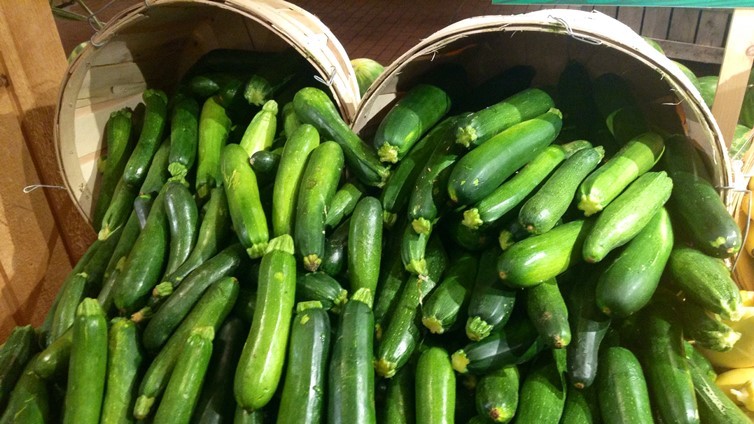
Zucchini is a summer squash that’s very healthy to us because of its many benefits and the fact that it contains almost no calories. It’s technically classified as fruit, as it comes from a flower, but most of us still consider it a vegetable. Whatever way you want to classify it, the question is – is it safe for dogs?
Yes, dogs can enjoy this vegetable (or fruit) as well! Zucchini is another squash that both you and your dog can have. Not only is it safe, it can be quite beneficial too! However, you should always know how to serve something to you dog and zucchini is no exception.
First of all, don’t let your dog eat the actual plant and flower. You should always remove them prior to serving zucchini to your dog. The second thing to have in mind is how to prepare it in the best way for your dog.
While we eat zucchini grilled or fried, as well as seasoned, dogs usually enjoy raw zucchini the most. A reminder – fried and seasoned food is absolutely off-limits for dogs. You can either feed zucchini raw or cooked and you can also mix it with something else your dog is having. Finally, avoid zucchini bread and muffins as dogs won’t benefit from them in any way.
Is Zucchini Healthy For Your Dog?
Yes, zucchini is healthy both for you and your dog. Let’s see why:
- Rich in vitamins, most importantly vitamin B and C
- A great source of important dietary fiber
- Contains potassium, folate, calcium and Beta Carotene
- Has anti-inflammatory properties
- Can lead to a healthier coat and skin
- Extremely low in calories
But Can Dogs Eat Zucchini Seeds?
We discovered that zucchini is a healthy vegetable for your dog too. Just make sure you cook them first!
The seeds found in zucchini are completely harmless, but if eaten raw they might cause some digestion issues. If you cook the zucchini before your dog eats the seeds with zucchini, then there’ll be no problems at all.
All in all – a very healthy addition to your dog’s regular food! Just remember to introduce it slowly and feed in moderation, on occasions.
Can Dogs Eat Pumpkin?
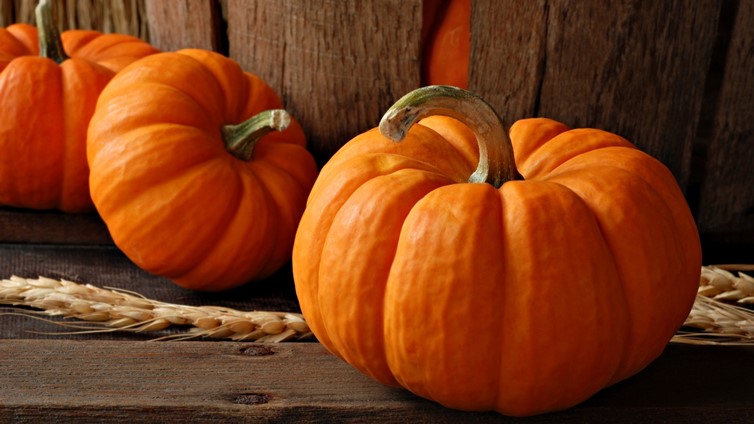
Pumpkin is another “fruit-vegetable” – technically fruit but considered vegetable by most. That’s not our subject however. We want to know whether dogs can eat pumpkin or not!
Yes, just like squash and zucchini, pumpkin is another healthy choice for your dog. We’ll take a look at the possible benefits later in the text, but first let’s find out what the best way to serve pumpkin is!
First of all, don’t give raw pumpkin to your dog. Instead, serve it canned or cooked. Pumpkin seeds are also fine for your dog to have, as long as you don’t salt them or add spicing.
If you choose to serve canned pumpkin you can mix it with any other dog food or use it in a treat, alongside peanut butter for example. However, make sure you’re buying 100-percent pumpkin and not pumpkin pie mix. For a great tip of pumpkin treat, check out this link.
And one more thing…Yes, you guessed it! Feed pumpkin in moderation, occasionally – there’s no reason to go overboard.
3 Reasons Why Pumpkin Is Healthy
Pumpkins are rich in beta-carotene (the reason behind its orange color), fiber, iron, zinc, vitamin A and potassium. These are all great nutrients, but we’ll list three main benefits that make pumpkins special!
1. Urinary Health
Thanks to the oils in pumpkin seeds, your dog’s urinary health will be kept in check. Dogs with problems in the urinary tract, especially urinary incontinence, will benefit from pumpkin.
2. Regular Digestion
Pumpkins are rich in fiber and water, which is a great combination for preventing constipation in dogs. They’re great for regulating bowel movement, just like bananas, and can help your dog with diarrhea. Introduce one or two tablespoons of canned pumpkin in your dog’s diet in order to solve the problem.
3. Weight Regulation
Pumpkins are also very low in calories, which is why it can be a great alternative for over-weight or obese dogs. Consult with your vet who will come up with a good diet, depending on your dog’s size.
Now – time to answer our last question of the day…
Can Dogs Eat Eggplant (Aubergine)?
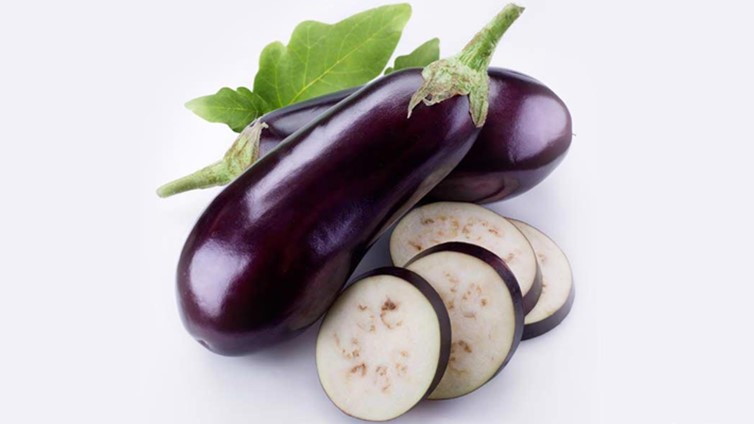
Eggplant is part of the nightshade family, with tomatoes and potatoes among others. This family is often considered to be bad for dogs, but is it a generalization? Are eggplants bad for dogs?
The answer is – dogs can eat eggplant and it’s not toxic in any way. If you follow some guidelines, your dog will be able to enjoy all the benefits eggplants have to offer.
First of all, you shouldn’t give eggplants to your dog if he or she has any kind of kidney problem, because the high oxalate levels will make this worse. If your dog is arthritic or has any other inflammation problems, you should also avoid eggplants as they’re inflammatory and will contract with anti-inflammatory medicine. Now – to the serving part!
How Do I Serve Eggplant To My Dog?
As mentioned, there are some guidelines you should follow if you want your dog to enjoy the eggplants the best way possible.
First of all, try to feed your dog organically grown eggplants, as other forms can have pesticides or other bad thins on them. Second, make sure to cook the eggplant properly before giving it to your dog. Raw eggplants should definitely be avoided.
You can choose how you want to cook it – bake, grill or boil it. Just remember not to give fried eggplant to your dog! Fried food and dogs are never a good combination. The same goes for seasoning.
Finally, don’t allow your dog to eat eggplant leaves! They can make your dog really sick, and even have fatal consequences in rare cases. This is why you can’t just give the eggplant as it is to your dog, you have to remove the leaves and cook it before.
Is Eggplant Healthy For Dogs?
Served properly and if your dog isn’t allergic, arthritic or has a kidney problem, eggplant can be really healthy for dogs! Here’s why:
- Eggplant contains nasunin, an anthocyanin photonutrient, which improves brain function and leads battles against brain damage
- Improves heart functions, blood flow and circulation
- Rich in fiber, manganese, copper, potassium, niacin and iron
- Contains chlorogenic acid which fights cancer, viral infections and dangerous bacteria
- Great source of vitamins B1, B6 and K
- Extremely low in calories
Conclusion On Squash, Zucchini, Pumpkin And Eggplant
Great news! Dogs can eat all of these vegetables (or fruit if you prefer that). They’re not toxic in any way and, if served properly, can be really healthy.
They’re a great source of vitamins, minerals and dietary fiber. Pumpkins are especially beneficial for keeping the urinary tract healthy and regulating bowel movement. On top of that, these four vegetables are extremely low in calories which makes them a great snack!
Just remember – feed any fruit or vegetable in moderation IF your dog likes and tolerates it. If not, don’t force it as dogs don’t have the same nutritive needs we do, so it won’t be a big loss.







